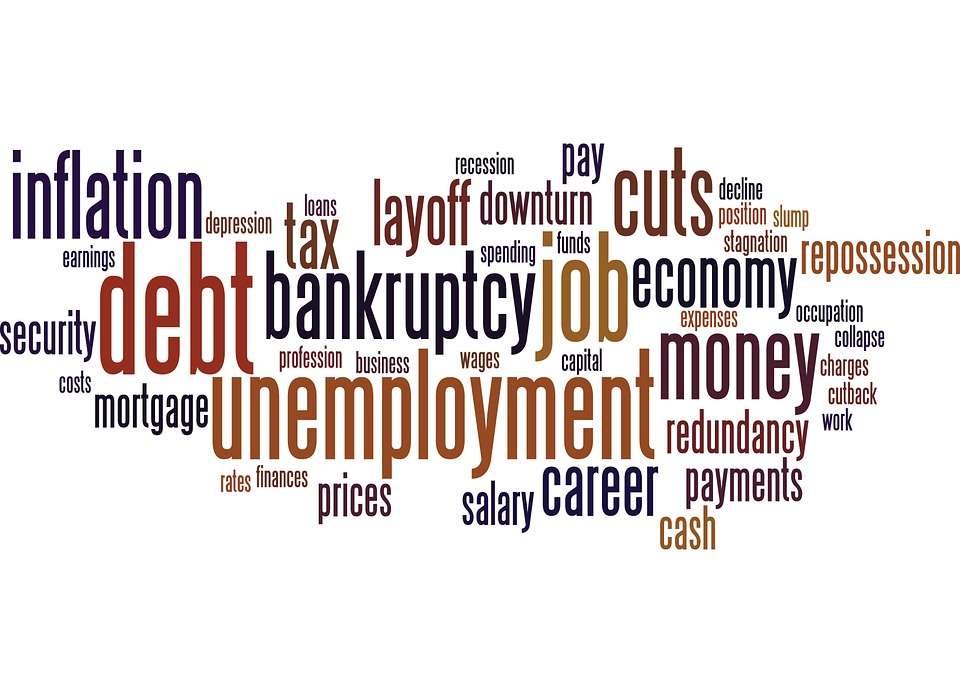Retirement Planning Basics: Start Early, Retire Comfortably

Retirement might seem like a distant dream, something you can worry about later. But the truth is, planning for it now can make all the difference in how comfortably you live during your golden years. Imagine enjoying leisurely mornings without financial stress or being able to travel and explore new hobbies with ease. The key to making that dream a reality lies in understanding the ins and outs of retirement planning. Starting early gives you an edge over uncertainty. With life expectancies increasing, having a solid plan ensures you’re ready for whatever comes your way.
Understanding Retirement Expenses
 Understanding retirement expenses is crucial to ensuring a comfortable life after your working years. Many people overlook this aspect, assuming that their current lifestyle will magically carry over into retirement. Start by identifying essential costs such as housing, utilities, and groceries. These are the everyday expenses you can’t avoid.
Understanding retirement expenses is crucial to ensuring a comfortable life after your working years. Many people overlook this aspect, assuming that their current lifestyle will magically carry over into retirement. Start by identifying essential costs such as housing, utilities, and groceries. These are the everyday expenses you can’t avoid.
Don’t forget about discretionary spending as well. Travel plans, hobbies, and dining out can significantly impact your budget.
Setting Retirement Goals and Timeline
Setting clear retirement goals is essential for a comfortable future. Think about what you want your life to look like after you stop working. Do you envision traveling, pursuing hobbies, or spending more time with family? Defining these aspirations helps create a roadmap. Next, establish a timeline. Consider when you’d like to retire and how many years remain until that moment arrives. This will guide your savings strategy and investment decisions.
Creating a Solid Savings Plan
Creating a solid savings plan is crucial for your retirement journey. Start by assessing your current financial situation. Take stock of income, expenses, and existing savings. Next, set clear goals. Determine how much you’ll need to retire comfortably based on your lifestyle expectations. This gives you a target to aim for. Choose a saving strategy that aligns with those goals. Consider high-yield savings accounts or certificates of deposit (CDs) as safe options initially. You can gradually incorporate more aggressive investments as comfort grows. Automate your contributions wherever possible. Consistent deposits make it easier to build wealth over time without the temptation to spend.
Investing for Retirement
Investing for retirement is crucial. It’s about making your money work harder for you over time. Start by diversifying your portfolio. Mix stocks, bonds, and mutual funds to spread risk. Historically, equities have offered higher returns than other assets, but they come with volatility. Consider your age when choosing investments. Younger investors can afford more risk since they have time to recover from market downturns. As you approach retirement, gradually shift toward safer options like bonds or fixed-income securities.
Maximizing Social Security Benefits
 Maximizing Social Security benefits is crucial for your retirement strategy. Understanding when to claim can significantly impact your monthly amount. Delaying benefits until age 70 often results in a larger payout. Consider your lifetime earnings as well. The formula used by Social Security calculates benefits based on your highest-earning 35 years.
Maximizing Social Security benefits is crucial for your retirement strategy. Understanding when to claim can significantly impact your monthly amount. Delaying benefits until age 70 often results in a larger payout. Consider your lifetime earnings as well. The formula used by Social Security calculates benefits based on your highest-earning 35 years.
If you have gaps in employment, working additional years can help boost those averages. Your marital status also plays a role. Spousal and survivor benefits provide options that might increase the total benefit received for couples.
Considering Healthcare and Long-Term Care
Healthcare costs can significantly impact your retirement savings. It’s crucial to plan for these expenses well in advance. Medicare provides essential coverage, but it won’t cover everything. Long-term care is another critical aspect to consider. Many people underestimate the need for assistance as they age. Whether it’s help with daily activities or skilled nursing care, these services can be expensive. Purchasing long-term care insurance might be a wise investment. This option helps mitigate out-of-pocket expenses and ease financial strain on your family.
Adjusting Plans as You Near Retirement Age
As you approach retirement age, it’s crucial to revisit your plans. Life changes can shift your priorities and financial situation. Market fluctuations may impact your investments, so assess their performance regularly. Adjusting your portfolio …






 One of the key benefits of investing in a Gold IRA is that gold is a tangible asset you can physically hold in your hands. Gold is a physical object with inherent value, unlike other investment options like stocks or bonds, which are simply pieces of paper or electronic entries. This tangibility provides a sense of security and peace of mind. Knowing that you have something real and substantial can be comforting in times of economic uncertainty or instability.
One of the key benefits of investing in a Gold IRA is that gold is a tangible asset you can physically hold in your hands. Gold is a physical object with inherent value, unlike other investment options like stocks or bonds, which are simply pieces of paper or electronic entries. This tangibility provides a sense of security and peace of mind. Knowing that you have something real and substantial can be comforting in times of economic uncertainty or instability.

 Retirement is a significant milestone in our lives. It’s when we bid farewell to our working years and start enjoying the fruits of our labor. But have you ever wondered how you would sustain your lifestyle during retirement? That’s where retirement planning comes into play. Retirement planning involves assessing your financial goals, estimating expenses, and creating a strategy to ensure a comfortable retirement. A financial advisor will also navigate the process and make informed decisions about your future. One aspect of retirement planning is determining how much money you will need once you stop working.
Retirement is a significant milestone in our lives. It’s when we bid farewell to our working years and start enjoying the fruits of our labor. But have you ever wondered how you would sustain your lifestyle during retirement? That’s where retirement planning comes into play. Retirement planning involves assessing your financial goals, estimating expenses, and creating a strategy to ensure a comfortable retirement. A financial advisor will also navigate the process and make informed decisions about your future. One aspect of retirement planning is determining how much money you will need once you stop working.
 There is no good and no need to impress others. You live your own life and set your own goals. You don’t need to spend money on things you can’t afford just to show off. Be content with what you have and save up for what you want. This will help you stay out of debt and avoid getting stuck in a cycle of borrowing money. Apart from that, you can also invest your money wisely to grow it over time instead of buying things that only satisfy your wants in a short time.
There is no good and no need to impress others. You live your own life and set your own goals. You don’t need to spend money on things you can’t afford just to show off. Be content with what you have and save up for what you want. This will help you stay out of debt and avoid getting stuck in a cycle of borrowing money. Apart from that, you can also invest your money wisely to grow it over time instead of buying things that only satisfy your wants in a short time. If you only make the minimum payment on your credit cards, it will take you much longer to pay off your debt. And, the longer you pay off your debt, the more interest you’ll accrue. That’s why it’s essential to always pay more than the minimum payment. Even if it’s just a little bit more, it can make a big difference in the long run.
If you only make the minimum payment on your credit cards, it will take you much longer to pay off your debt. And, the longer you pay off your debt, the more interest you’ll accrue. That’s why it’s essential to always pay more than the minimum payment. Even if it’s just a little bit more, it can make a big difference in the long run.
 It’s not every day that we get to have peace of mind about our
It’s not every day that we get to have peace of mind about our 
 One of the best ways to achieve financial stability is to prioritize saving. It may seem difficult to save money when you’re already struggling to make ends meet, but it’s important to remember that even small savings can add up over time. If you can put away just $50 per month, you’ll have $600 saved up after one year. And if you can increase your savings to $100 per month, you’ll have $1200 saved up after one year. No matter how small your savings may be, they can still make a big difference in your overall financial situation.
One of the best ways to achieve financial stability is to prioritize saving. It may seem difficult to save money when you’re already struggling to make ends meet, but it’s important to remember that even small savings can add up over time. If you can put away just $50 per month, you’ll have $600 saved up after one year. And if you can increase your savings to $100 per month, you’ll have $1200 saved up after one year. No matter how small your savings may be, they can still make a big difference in your overall financial situation. Last but not least, one of the best ways to achieve financial stability is to build an emergency fund. This will help you cover unexpected expenses without going into debt. Aim to save enough money to cover at least three months of living expenses. You’ll be in good shape financially if you ever face a job loss or another financial emergency if you can do. Many people have been forced into debt by unexpected expenses, so an emergency fund can be a real lifesaver.
Last but not least, one of the best ways to achieve financial stability is to build an emergency fund. This will help you cover unexpected expenses without going into debt. Aim to save enough money to cover at least three months of living expenses. You’ll be in good shape financially if you ever face a job loss or another financial emergency if you can do. Many people have been forced into debt by unexpected expenses, so an emergency fund can be a real lifesaver.
 The first step to repaying your personal loan is knowing how much you owe. It may seem like a no-brainer, but you would be surprised at how many people don’t know their exact loan balance. If you don’t know how much you owe, it won’t be easy to make a plan to repay the loan.
The first step to repaying your personal loan is knowing how much you owe. It may seem like a no-brainer, but you would be surprised at how many people don’t know their exact loan balance. If you don’t know how much you owe, it won’t be easy to make a plan to repay the loan. It would help if you considered a few things when making a repayment plan. Decide how much you can afford to pay each month. Then it’s advisable to have a payment schedule that works for you. Finally, you need to make sure that you stick to the plan.
It would help if you considered a few things when making a repayment plan. Decide how much you can afford to pay each month. Then it’s advisable to have a payment schedule that works for you. Finally, you need to make sure that you stick to the plan.
 It can be hard to keep track of everything, especially if you have a lot of bills to pay. But, you should try your best to pay all of your bills on time. If you’re late on a payment, it will show up on your credit report and lower your score. People that always late on their payments won’t be able to do much because their low credit score will keep them from qualifying for loans, credit cards, and other types of financing.
It can be hard to keep track of everything, especially if you have a lot of bills to pay. But, you should try your best to pay all of your bills on time. If you’re late on a payment, it will show up on your credit report and lower your score. People that always late on their payments won’t be able to do much because their low credit score will keep them from qualifying for loans, credit cards, and other types of financing. If you’re not sure how to repair your credit score on your own, you can always get professional help. Some companies specialize in credit repair, and they can help you get your score back up in no time.
If you’re not sure how to repair your credit score on your own, you can always get professional help. Some companies specialize in credit repair, and they can help you get your score back up in no time.
 Emergency loans can help cover expenses that are not covered by your insurance. For example, if you have to go to the hospital and your insurance doesn’t cover all the costs, an emergency loan could help pay for the remainder of the bill. This is just one example of how an emergency loan can be a lifesaver in a time of need.
Emergency loans can help cover expenses that are not covered by your insurance. For example, if you have to go to the hospital and your insurance doesn’t cover all the costs, an emergency loan could help pay for the remainder of the bill. This is just one example of how an emergency loan can be a lifesaver in a time of need. Another great advantage of emergency loans is that they are available for people with bad credit or no credit history. This is because emergency loans are meant to be used in emergencies and not as a long-term solution for financial difficulties. So if you have had some trouble with your credit in the past, don’t worry! You may still be eligible for an emergency loan.
Another great advantage of emergency loans is that they are available for people with bad credit or no credit history. This is because emergency loans are meant to be used in emergencies and not as a long-term solution for financial difficulties. So if you have had some trouble with your credit in the past, don’t worry! You may still be eligible for an emergency loan.

 You should also consider whether or not a tax relief company charges a fee to use its services. While it is common for companies to charge fees, you should only work with one that does so if they are experienced and have had success in previous cases.This will ensure that your case has the highest chance of being resolved successfully without costing you too much money upfront. Different tax relief companies will charge differently. If you are unsure, it is recommended to ask the company for details about their fee.It is essential to consider the information above to get the best tax relief company.…
You should also consider whether or not a tax relief company charges a fee to use its services. While it is common for companies to charge fees, you should only work with one that does so if they are experienced and have had success in previous cases.This will ensure that your case has the highest chance of being resolved successfully without costing you too much money upfront. Different tax relief companies will charge differently. If you are unsure, it is recommended to ask the company for details about their fee.It is essential to consider the information above to get the best tax relief company.…
 The truth is that the credit repair process is quite stressful. That is the case when you want to reach your
The truth is that the credit repair process is quite stressful. That is the case when you want to reach your  A reputable credit repair company cannot pressure you to enroll without reviewing your credit history. That is because there is a chance that everything on the credit report is accurate. As a result, there is no credit repair company that can help you. Therefore, a free consultation is necessary to connect you with credit repair experts. Since credit repair is their work, they understand the ins and outs of the process.
A reputable credit repair company cannot pressure you to enroll without reviewing your credit history. That is because there is a chance that everything on the credit report is accurate. As a result, there is no credit repair company that can help you. Therefore, a free consultation is necessary to connect you with credit repair experts. Since credit repair is their work, they understand the ins and outs of the process.
 This is the first thing you need to do before you start looking for a credit repair company. Ideally, there is a need to know how huge your problem is. Many people discover that they have a credit issue when their application for a
This is the first thing you need to do before you start looking for a credit repair company. Ideally, there is a need to know how huge your problem is. Many people discover that they have a credit issue when their application for a  Hiring a credit repair company does not mean you should not follow up on what is happening. You have to keep checking your credit repair efforts and monitor the rating. Make sure you list down things the credit repair company is unable to remove.…
Hiring a credit repair company does not mean you should not follow up on what is happening. You have to keep checking your credit repair efforts and monitor the rating. Make sure you list down things the credit repair company is unable to remove.…
 One of the many problems that many people face when dealing with traditional financial institutions is that they have to go through a lot of trouble to get a loan. This is not the case with
One of the many problems that many people face when dealing with traditional financial institutions is that they have to go through a lot of trouble to get a loan. This is not the case with  One of the main reasons why many people have come to prefer online loan lenders is that they provide reasonable interest rates. It is rather unfortunate that people get into more financial problems after getting a loan as some lenders set high interest rates that some find hard to afford.
One of the main reasons why many people have come to prefer online loan lenders is that they provide reasonable interest rates. It is rather unfortunate that people get into more financial problems after getting a loan as some lenders set high interest rates that some find hard to afford.



 Credit Score Is Not Required
Credit Score Is Not Required Doing so will offer a variety of benefits, worth a lot more than the amount that you will have to pay for the services. The key idea is to choose a service provider with a good reputation and can handle the job on behalf of your business. Some of the top benefits of outsourcing check processing are highlighted below.
Doing so will offer a variety of benefits, worth a lot more than the amount that you will have to pay for the services. The key idea is to choose a service provider with a good reputation and can handle the job on behalf of your business. Some of the top benefits of outsourcing check processing are highlighted below.
 You don’t have to worry about filing taxes, bookkeeping, and updating your financial records because your accountant will do all the work for you. The kind of advice they offer is essential for
You don’t have to worry about filing taxes, bookkeeping, and updating your financial records because your accountant will do all the work for you. The kind of advice they offer is essential for  accountants to find out who is charging reasonably for such services. Charges may vary depending on the level of expertise of the accountant you are hiring and the nature of work at hand. Put all these factors into consideration to get the right accountant for your business.…
accountants to find out who is charging reasonably for such services. Charges may vary depending on the level of expertise of the accountant you are hiring and the nature of work at hand. Put all these factors into consideration to get the right accountant for your business.…
 The main reason why you need the money will drive your choice of lender and the type of a loan you will qualify. That is why it is recommended to take most of your time to figure out why you need financing, and this will help you to get your loan.
The main reason why you need the money will drive your choice of lender and the type of a loan you will qualify. That is why it is recommended to take most of your time to figure out why you need financing, and this will help you to get your loan.

 Once you land a job, it is essential to have a plan to settle your debts as soon as you can. This move will see you improve your credit history. This will see you improve your
Once you land a job, it is essential to have a plan to settle your debts as soon as you can. This move will see you improve your credit history. This will see you improve your 
 Business loans help business people to create companies. However, they often forget that the assets are not entirely theirs until they pay the debts. You are better to allocate your company’s revenue to fulfill the existing outstanding obligations than to develop and improve.
Business loans help business people to create companies. However, they often forget that the assets are not entirely theirs until they pay the debts. You are better to allocate your company’s revenue to fulfill the existing outstanding obligations than to develop and improve. Reading the full pages of an agreement and interpret the sentences one by one meticulously is an excruciating task. And often, you, as a CEO, have to get tens or even hundreds of deals at once. Consequently, you may scan and skim without paying attention to the contents of the contracts. And you may have signed the ones that are burdensome and unprofitable to your company’s interest.
Reading the full pages of an agreement and interpret the sentences one by one meticulously is an excruciating task. And often, you, as a CEO, have to get tens or even hundreds of deals at once. Consequently, you may scan and skim without paying attention to the contents of the contracts. And you may have signed the ones that are burdensome and unprofitable to your company’s interest. Marketing today integrates very well with information technology. Branding no longer focuses on printed advertisements but the digital ones. You should update your knowledge on this matter so that your company can keep up with the fast developing phases of modern business.
Marketing today integrates very well with information technology. Branding no longer focuses on printed advertisements but the digital ones. You should update your knowledge on this matter so that your company can keep up with the fast developing phases of modern business.
 when there is internet access and mobile phones. This number of the population will easily access cryptocurrency systems because there are many phone applications which are able to allow the transfer of digital currencies.
when there is internet access and mobile phones. This number of the population will easily access cryptocurrency systems because there are many phone applications which are able to allow the transfer of digital currencies. The digital currencies do not require your financial details to make the transaction complete. The transaction you make will not be traced to your identity. For this reason, when you use cryptocurrency you will not give personal information. The whole process of making transactions involves the private and public key.
The digital currencies do not require your financial details to make the transaction complete. The transaction you make will not be traced to your identity. For this reason, when you use cryptocurrency you will not give personal information. The whole process of making transactions involves the private and public key. This is the first thing to do if you have a debt problem. Start by carrying out an honest appraisal of the outstanding debts and amount of money they are likely to cost you. It is a good idea to start by writing down the debt you have and provide much information as you need. You cannot make progress until you have a good picture of your financial burden.
This is the first thing to do if you have a debt problem. Start by carrying out an honest appraisal of the outstanding debts and amount of money they are likely to cost you. It is a good idea to start by writing down the debt you have and provide much information as you need. You cannot make progress until you have a good picture of your financial burden. The first thing to do is to develop a budget. When you have a good picture of the debts you have, the next thing to do is plan how to repay them each month. Come up with a detailed plan for your expenses and income. Moreover, you should determine the amount of money you have to pay debts. How can you minimize your expenses by cutting back on non-essentials and making savings?
The first thing to do is to develop a budget. When you have a good picture of the debts you have, the next thing to do is plan how to repay them each month. Come up with a detailed plan for your expenses and income. Moreover, you should determine the amount of money you have to pay debts. How can you minimize your expenses by cutting back on non-essentials and making savings? If you establish a business, the first thing that you should work to achieve is to attract as many customers as possible. This is something that requires a lot of dedications and efforts. First, you need to ensure that you give your customers the quality services that they need. Once you realize that you are attracting the right number of customers, the next thing that you need to do is work towards retaining them. The question of whether or not you will be able to maintain your customers depends on the quality of the services that you are going to offer. Always focus on the future if you really want to run a successful business.
If you establish a business, the first thing that you should work to achieve is to attract as many customers as possible. This is something that requires a lot of dedications and efforts. First, you need to ensure that you give your customers the quality services that they need. Once you realize that you are attracting the right number of customers, the next thing that you need to do is work towards retaining them. The question of whether or not you will be able to maintain your customers depends on the quality of the services that you are going to offer. Always focus on the future if you really want to run a successful business. The reputation of your business is very important to the success of your business. People chose the products and services provided based on the reputation of the company. This, therefore, tells you that you should never do anything that will spoil the reputation of your company. You can also check out arthur pinheiro machado to learn more about establishing yourself economically.…
The reputation of your business is very important to the success of your business. People chose the products and services provided based on the reputation of the company. This, therefore, tells you that you should never do anything that will spoil the reputation of your company. You can also check out arthur pinheiro machado to learn more about establishing yourself economically.…
 Everyone wants to have quality services. Unfortunately, not all insurance companies that can provide the quality services that you are looking for. So the question is, how do you ensure that the insurance company that you are approaching is capable of providing you with quality services? Well, you just need to make a keen observation in every step that you take. First, you need to ensure that the company offers its services around the clock. This is important because there are situations that you might be in an emergency and under such like circumstances you will need a company that will be able to respond immediately. You also need to look at how they speak to you through the phone.
Everyone wants to have quality services. Unfortunately, not all insurance companies that can provide the quality services that you are looking for. So the question is, how do you ensure that the insurance company that you are approaching is capable of providing you with quality services? Well, you just need to make a keen observation in every step that you take. First, you need to ensure that the company offers its services around the clock. This is important because there are situations that you might be in an emergency and under such like circumstances you will need a company that will be able to respond immediately. You also need to look at how they speak to you through the phone. The reputation of the insurance company is another important consideration that you need to make. An insurance company cannot earn a good reputation if they are not known for providing quality services. So take time to look at the online reviews to get all the necessary information that you will need to make the right choice. Also, do not hesitate to talk to your friends and family members about it as they could be having an important information on the matter.…
The reputation of the insurance company is another important consideration that you need to make. An insurance company cannot earn a good reputation if they are not known for providing quality services. So take time to look at the online reviews to get all the necessary information that you will need to make the right choice. Also, do not hesitate to talk to your friends and family members about it as they could be having an important information on the matter.…
 If you are starting small, this is probably the best way to do it. MCA or merchant cash advance is when you get the cash right away and payback in the form of future credit sales that you will make. Look for the best merchant cash advance companies in your area, and you contact them today. Remember that it is not precisely a loan and it is better than a loan because the process is faster and not as complicated.
If you are starting small, this is probably the best way to do it. MCA or merchant cash advance is when you get the cash right away and payback in the form of future credit sales that you will make. Look for the best merchant cash advance companies in your area, and you contact them today. Remember that it is not precisely a loan and it is better than a loan because the process is faster and not as complicated. There are many types of investors out there, from an angel investor who would typically fund everything, venture capitalist, and peer to peer lenders. Many of them will fulfill different needs, and there is not a single type that is better than the other. For example, a venture capitalist is perfect if your business is already running and planning to go on a big scale. But peer to peer is better if you want to start small and your network consists of people that have enough money to help.…
There are many types of investors out there, from an angel investor who would typically fund everything, venture capitalist, and peer to peer lenders. Many of them will fulfill different needs, and there is not a single type that is better than the other. For example, a venture capitalist is perfect if your business is already running and planning to go on a big scale. But peer to peer is better if you want to start small and your network consists of people that have enough money to help.…

 Some people have payday loans that give about a month as the repayment period. When the persons get money before the month ends, they get a feeling of being temporarily rich and forget to cover their debt. Unfortunately, the mistake leads to increased loan burdens. For instance, the individual will have to look for additional money to cover the debt at the end of the month. Meanwhile, a savvy person uses the money got to pay the loan in part or in full so that when the paycheck arrives, only part of it goes towards clearing the credit. Spending the money you earn now when you have outstanding payday loans is a terrible habit. It leads to expenditures that you cannot afford because you still owe the borrowed money.
Some people have payday loans that give about a month as the repayment period. When the persons get money before the month ends, they get a feeling of being temporarily rich and forget to cover their debt. Unfortunately, the mistake leads to increased loan burdens. For instance, the individual will have to look for additional money to cover the debt at the end of the month. Meanwhile, a savvy person uses the money got to pay the loan in part or in full so that when the paycheck arrives, only part of it goes towards clearing the credit. Spending the money you earn now when you have outstanding payday loans is a terrible habit. It leads to expenditures that you cannot afford because you still owe the borrowed money.
 reason banks cannot give Loans For Bad Credit without a Guarantor. They need someone who will assure them loan is paid if you fail to do so. Taking that position can be risky. You should know the implications you may face for being one. A warrantor should understand the nature of a particular loan before agreeing to provide its guarantee. Those with poor listing and want a loan should also be keen when choosing a guarantor. Here is what you should consider when selecting a trusted one.
reason banks cannot give Loans For Bad Credit without a Guarantor. They need someone who will assure them loan is paid if you fail to do so. Taking that position can be risky. You should know the implications you may face for being one. A warrantor should understand the nature of a particular loan before agreeing to provide its guarantee. Those with poor listing and want a loan should also be keen when choosing a guarantor. Here is what you should consider when selecting a trusted one.


 In attempts to get the country back to its feet, brazils current government led by president Michel Temer who took office right after the impeachment. In his tenure, parliament passed financial laws aimed at capping public spending. As much as popular investors highly lauded this move, it has been met with fierce criticism by the population who are still wallowing in poverty and unemployment.
In attempts to get the country back to its feet, brazils current government led by president Michel Temer who took office right after the impeachment. In his tenure, parliament passed financial laws aimed at capping public spending. As much as popular investors highly lauded this move, it has been met with fierce criticism by the population who are still wallowing in poverty and unemployment. It is arguable that investors make investing decisions just the way gamblers make gambling decisions. With the erratic movement of stock prices, for example, you never know which company will be doing good tomorrow. An investment may be very promising today, but tomorrow, it may be nullified by the legal system. Indeed,
It is arguable that investors make investing decisions just the way gamblers make gambling decisions. With the erratic movement of stock prices, for example, you never know which company will be doing good tomorrow. An investment may be very promising today, but tomorrow, it may be nullified by the legal system. Indeed,
 Worst case scenario, they have no money to pay for your tuition. It’s all up to you to pull yourself together and see how to come through it successfully. Come to think of it; it can’t be as hard as most of us have come to believe. Most of us have heard of student loans.
Worst case scenario, they have no money to pay for your tuition. It’s all up to you to pull yourself together and see how to come through it successfully. Come to think of it; it can’t be as hard as most of us have come to believe. Most of us have heard of student loans.

